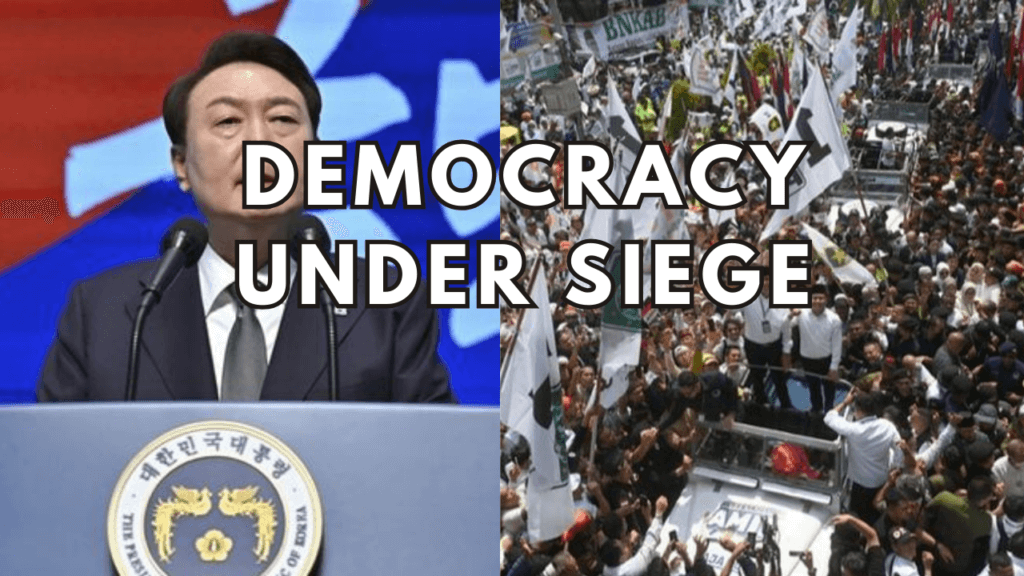South Korea’s Political Crisis
South Korea faces an unprecedented political crisis after President Yoon Suk Yeol’s controversial martial law declaration. The president’s dramatic six-hour martial law order sparked nationwide protests and calls for his immediate resignation. This historic event marks the first time since 1980 that martial law has been declared in South Korea, sending shockwaves through the nation’s democratic institutions.
In a televised address, President Yoon apologized to the nation but refused to step down. His brief martial law declaration resulted in military forces entering parliament grounds and confrontations with lawmakers. The president’s decision came amid growing tensions between his administration and opposition parties over controversial economic policies.
Military Deployment and Parliamentary Response
Nearly 300 armed soldiers entered the National Assembly during the crisis, creating scenes reminiscent of South Korea’s authoritarian past. Some troops attempted to break into the building, causing damage estimated at millions of won and injuries to several staff members. Parliament members, showing remarkable unity, successfully pushed back against the military presence and voted unanimously against the martial law decree.
The military’s deployment triggered immediate international concern, with several foreign embassies issuing statements of worry about South Korea’s democratic stability. Security experts suggest this incident could have long-lasting implications for civilian-military relations in the country.
Political Fallout and International Impact
Defense Minister Kim Yong-hyun submitted his resignation, taking full responsibility for the martial law implementation. The Democratic Party, along with five smaller opposition parties, has submitted an impeachment bill against President Yoon, garnering support from over 200 parliament members.
The crisis has severely affected South Korea’s financial markets, with the country’s stock market dropping 1.4% and the won reaching a two-year low. International allies, including the United States, Japan, and the European Union, are closely monitoring the situation. Major credit rating agencies have placed South Korea’s sovereign rating under review, citing political instability concerns.
Local businesses report significant disruptions, with many international investors putting their plans on hold. The tourism sector has also taken a hit, with numerous cancellations reported by major hotels and tour operators.
Final Thoughts: South Korea’s Democracy at a Crossroads
The unprecedented martial law crisis has raised serious questions about South Korea’s democratic future and the balance of power between civilian and military authorities. As the nation grapples with this constitutional crisis, the coming weeks will be crucial in determining the trajectory of South Korean democracy.
What are your thoughts on this historic political moment? Share your comments below and join the discussion about South Korea’s democratic future.







